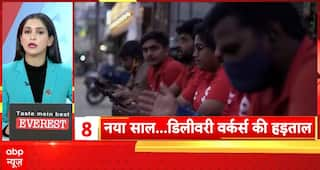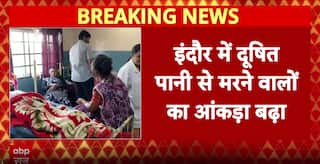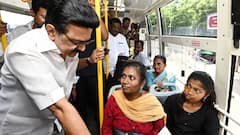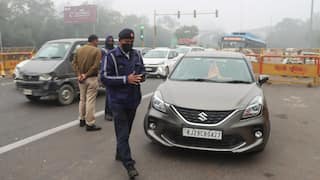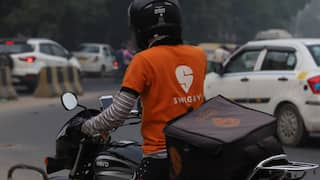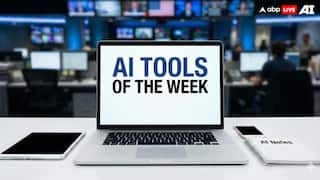What Is Dravidian Economics? Analyst S Dharanidharan Explains Why Experts Are Proposing It
S Dharanidharan, executive coordinator of Dravidian Professionals Forum, tells ABP Live Dravidian economics is what economists are proposing to propel growth, and that rest of India should follow this

Chennai: Tamil Nadu Finance Minister PTR Palanivel Thiyagarajan presented Tamil Nadu Budget 2021 on August 13, prior to which he had released a white paper on the AIADMK government's last two terms and DMK's one term before that. This display of "transparency" by the government has led to conversations on Tamil Nadu economy, with economists saying that the DMK-led government is following a different approach — the Dravidian Economics to be specific.
In an interview to ABP Live, S Dharanidharan, the executive coordinator of Dravidian Professionals Forum, discussed Dravidian economics, how the economic policies of Dravidian parties differ from other regional and national players, and how economic policies combined with social justice measures can create a level playing field in Tamil Nadu.
Dravidian Professionals Forum, founded by PTR Palanivel Thiyagarajan, is a not-for-profit organisation working to propagate and disseminate Dravidian ideologies and its impact on the society. Excerpts from the exclusive interview:
Q. In layman's term, what’s Dravidian economics and how is this economic policy different from other states?
Dravidian economics aims to uplift the downtrodden. There is a huge difference between the way the Union government and the Tamil Nadu government make policies. The Union government brought down the corporate taxes. However, the tax on fuel prices increased, giving more money in the hands of the rich. This should be the other way round. If money is with the rich then it will be in bank deposits, but if it’s with the underprivileged then it will be used to purchase essentials, which is a multiplicity of money. So, this is what we mean by Dravidian Economics.
Q. Budget 2021 did not impose any new tax despite the fiscal deficit. So, will this not pose a burden to the state government?
The biggest problem in Indian economics at the present time is on the demand side, and not the supply side. So, if you give money to corporates, they will build factories. However, if people do not have money in their hands for purchasing, the problem is on the demand side. In economics, supply should meet the demand and here the problem is demand. Due to the pandemic and high cess by the central government on petrol and diesel, the demand has reduced. The lack of demand has also led to unemployment. There is another economic theory that says whenever there is lack of demand, the growth will slow down and unemployment will increase. That’s why the taxes were not increased.
Also, the revenue of Tamil Nadu has reduced not because taxes have reduced but because of inefficiency, corruption and lack of capacity. The revenue that should have rightfully come to Tamil Nadu did not come.
Q. During the white paper release, the finance minister said DMK govt will identify and give help to the downtrodden. How will this translate on the field?
In an utopian world, everything should be given by the government to everyone for free. This is why developed nations like Norway give freebies while developing countries give lesser benefits. So, this budget is presented by the finance minister within 100 days of taking charge, and also 70 per cent of the time was used to curtail Covid-19. The state also received lesser finances than what was forecast in the previous year, and already there was an interim budget presented by the AIADMK government. So, there were several constraints and the future budgets will be different from the current budget. Hence, the focus is to at least help the poor who need it. There are also several ways to identify the downtrodden based on income, the tax they pay etc. However, the problem has always been that they have not identified the downtrodden and it’s done with arbitraries.
Q. What’s your take on freebies? Do you think Dravidian Economics gives freebies?
I do not call them freebies and they should be called developmental schemes or economic necessities. When former Tamil Nadu CM Karunanidhi gave televisions, they called it freebies. However, a study says that school enrollment in villages of Tamil Nadu increased after the introduction of television. Girl children’s enrollment into schools has increased and the voice against domestic abuse has increased. So, this has helped the people, and especially women have started to move away from the patriarchal setup.
The per capita income of Uttar Pradesh and Tamil Nadu was the same in the past, but the growth increased (in TN) after the opening of the economy. However, the economy says that in an unequal society whenever there is huge capitalist growth, inequality only becomes bigger since the money goes only to certain sections of the society. However, why Tamil Nadu grew is because the industry was spread out and there was distribution of growth despite India being a stratified society because of the caste system. So, for this, economic necessities were crucial.
Q. Do you think Dravidian Economics with social justice schemes is the way forward for India?
Yes, most economists are talking about Dravidian Economics. Economist Abhijit Banerjee has said that for the Indian economy to grow we need to put money in the hands of the poor. Leading economist Thomas Piketty has said that the biggest inefficiency in the market today is capital inequality. Only a few percentage of the population have the majority of the benefits. They must be taxed, and it must be given to the poor, which will propel the growth. So...Dravidian Economics is what many economists are proposing to propel growth. There is no doubt that the rest of India should follow. If you tax the rich more, you can put more money in the hands of the poor.
Related Video
Tamannaah opens up on making her Tamil digital debut with 'November Story' | SBS Originals











